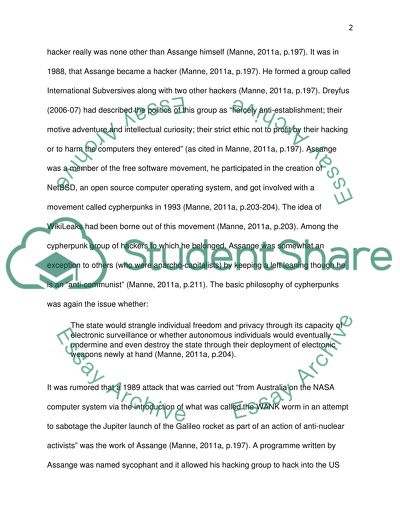Cite this document
(“Julian Assange and his impact on the communication processes and Essay”, n.d.)
Retrieved de https://studentshare.org/journalism-communication/1391322-julian-assange-his-impacts-communication-processes-politics-globalised-world
Retrieved de https://studentshare.org/journalism-communication/1391322-julian-assange-his-impacts-communication-processes-politics-globalised-world
(Julian Assange and His Impact on the Communication Processes and Essay)
https://studentshare.org/journalism-communication/1391322-julian-assange-his-impacts-communication-processes-politics-globalised-world.
https://studentshare.org/journalism-communication/1391322-julian-assange-his-impacts-communication-processes-politics-globalised-world.
“Julian Assange and His Impact on the Communication Processes and Essay”, n.d. https://studentshare.org/journalism-communication/1391322-julian-assange-his-impacts-communication-processes-politics-globalised-world.


